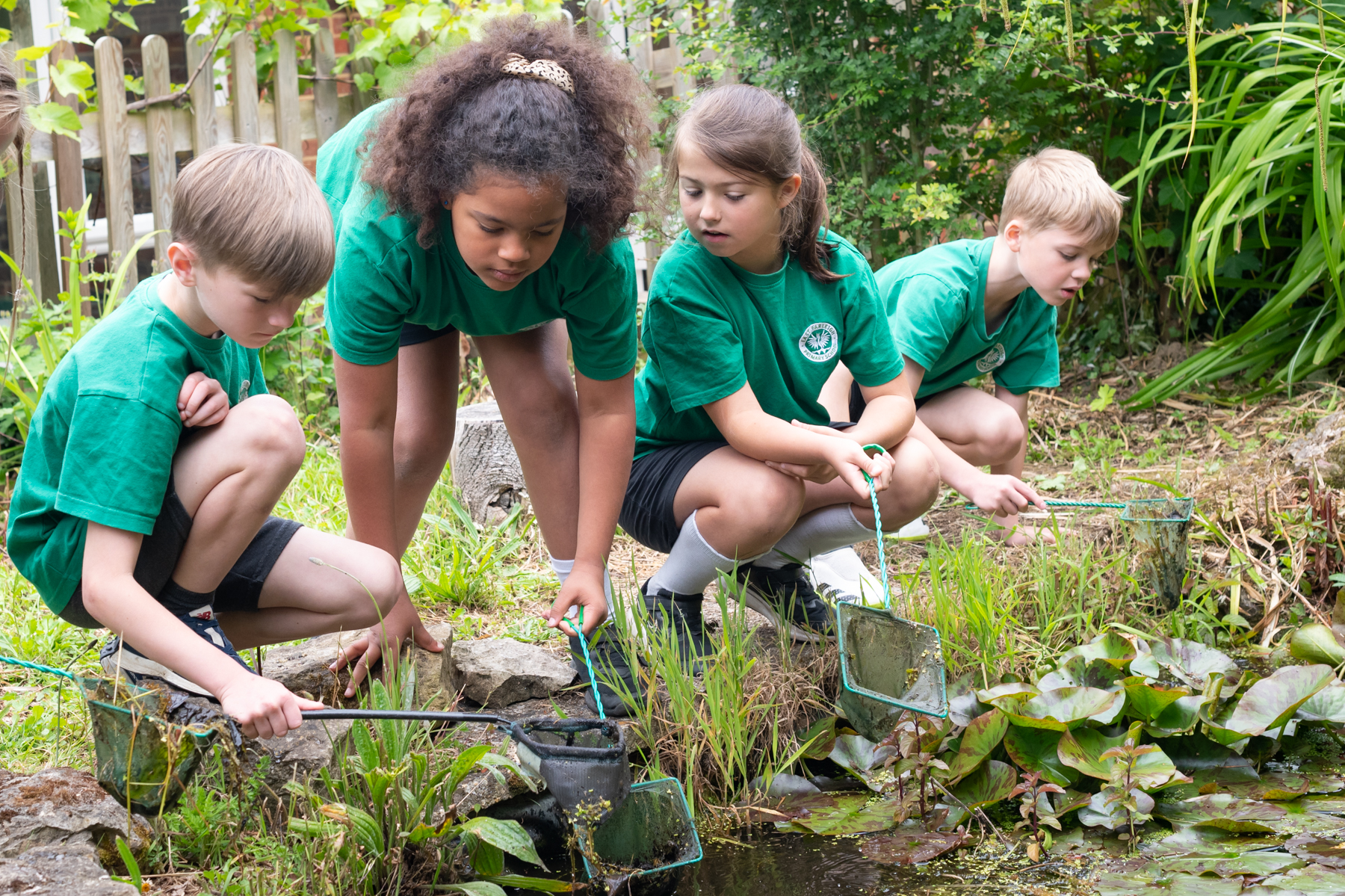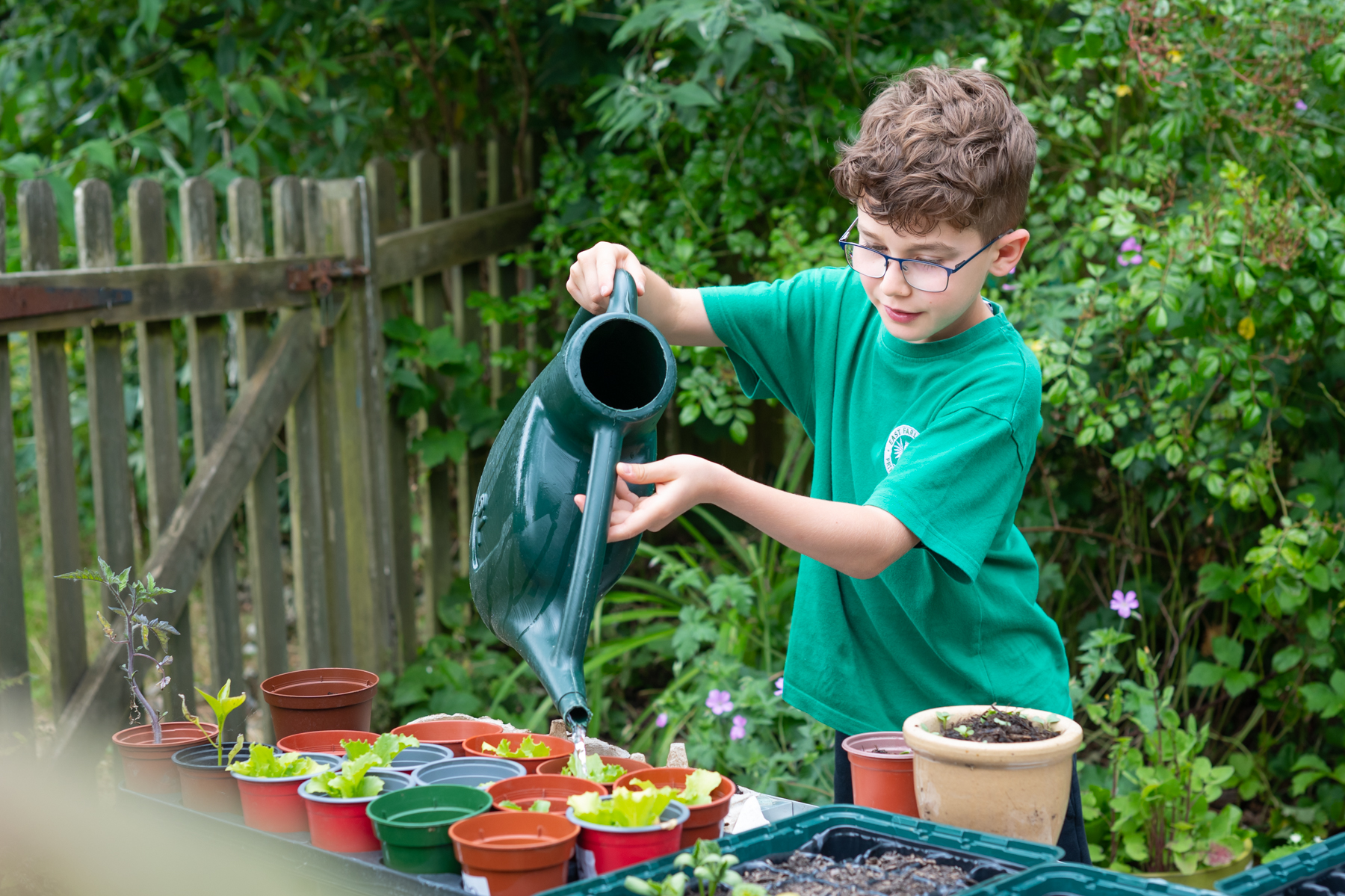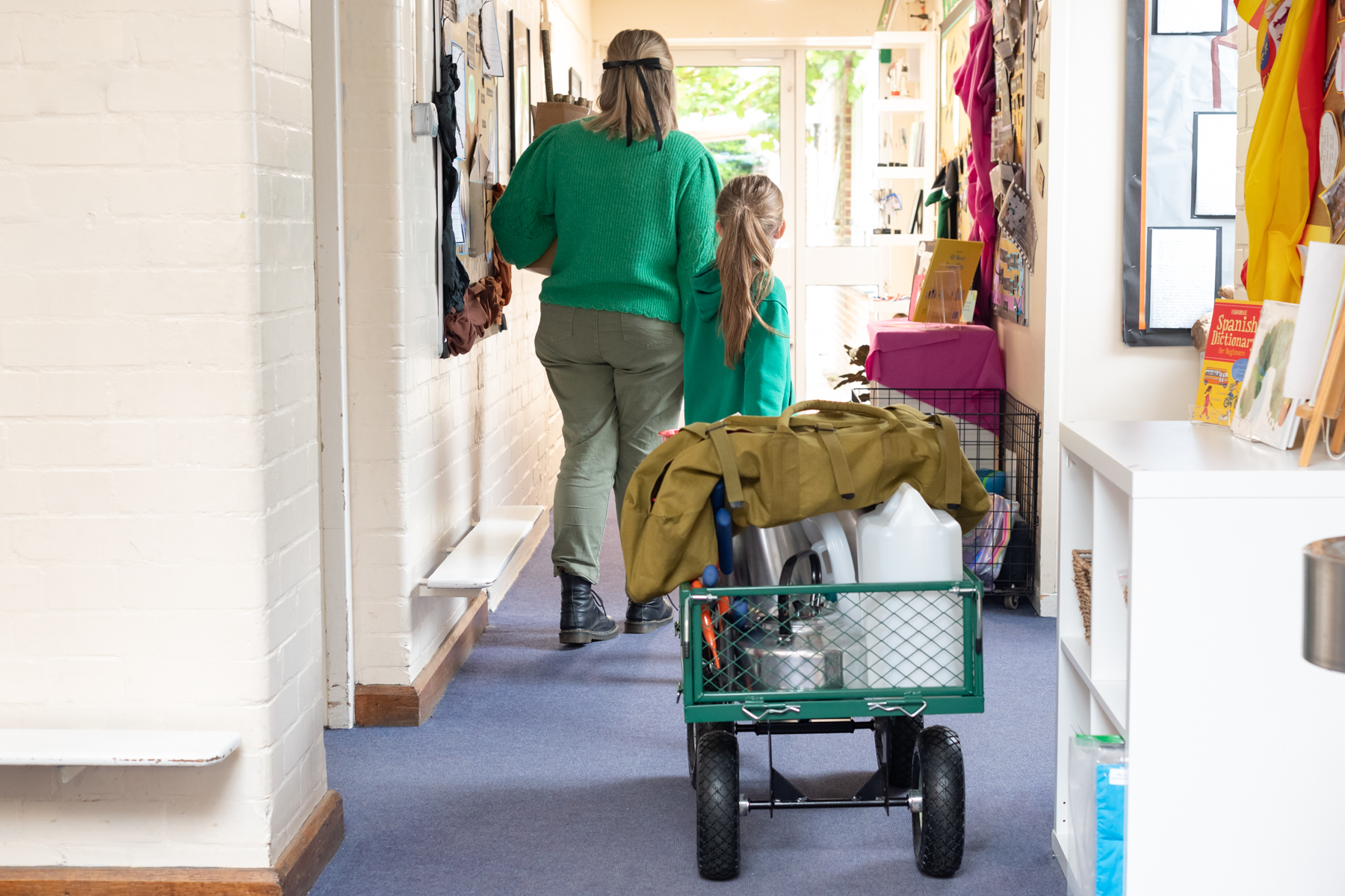Forest School
Embracing Nature, Fostering Growth, Improving Mental Wellbeing.....
East Farleigh's small Forest School provides an enriching outdoor learning experience right here on our school grounds. Our Forest School curriculum is designed to inspire children through hands-on, nature-based learning, fostering stronger connections with the natural world.
What is Forest School?
Forest School is a unique educational approach that focuses on learning through play, exploration, and supported risk-taking in a natural environment. It encourages children to develop confidence, self-esteem, and independence as they engage with nature in a safe and structured setting.

Our Forest School Environment
Our Forest School is situated within our school grounds, offering a safe and accessible space where children can explore, discover, and learn. The area includes a variety of natural features, such as trees, shrubs, a pond area and a raised garden planting areas, creating a rich and diverse environment for children to engage with.

Curriculum Highlights
Over the course of the academic year, all children will have curriculum time in Forest School. These sessions will include:
• Child-Led Learning: Our Forest School sessions are child-led, allowing students to take the initiative and follow their interests. This approach fosters creativity, problem-solving, and decision-making skills.
• Seasonal Activities: We embrace the changing seasons with a variety of activities, from building shelters and crafting with natural materials to identifying plants and wildlife. Each season brings new opportunities for learning and exploration.
• Team Building: Children work together on group projects, enhancing their teamwork and communication skills. Activities such as building dens, creating natural art, and participating in group challenges promote cooperation and collaboration.
• Practical Skills: Students learn practical skills such as tool use, fire lighting, and knot tying, all under the close supervision of trained Forest School leaders. These skills build resilience and self-sufficiency.
• Environmental Stewardship: We instill a sense of environmental responsibility by teaching children about conservation and sustainable practices. Activities include planting trees, maintaining habitats, and learning about local wildlife.

Forest School News
-
Friday 28 March 2025 Bird Feeders & Doughnuts.... What a day!
-
Friday 28 February 2025 Forest Geometry I have had a fantastic day with year 3. Today we made our very own Geoboards. We used wood cookies, nails, wooden mallets and elastic bands.
-
Friday 31 January 2025 Rain & Scavanger Hunts Today has been a pretty wet and muddy day with Year 4.
-
Friday 24 January 2025 Hedgehog Houses It was a blustery day in Forest school today and the rain stayed away. Year R had a fun time exploring all things bugs. We read a brilliant little story to remind us that we are never alone when we are in the garden. There are little creatures and mini beasts everywhere - even if we don't see them.
-
Friday 17 January 2025 Minibeasts Happy Forest school Friday to all!!
-
Friday 10 January 2025 Frosty Clove Hitching
-
Friday 6 December 2024 Elder Pencil Anyone?
-
Friday 22 November 2024 Saw Team-work & Firebuilding For today's forest school news, please check out my little video to see what we have done. Everyone had a great time and enjoyed the brisk fresh air.
-
Friday 15 November 2024 Introducing Nugget.... We had a fabulous day today making some DIY bird feeders. We have a resident Robin the children have now named 'Nugget'. He attends all forest school sessions and sings us a lovely song.
-
Friday 8 November 2024 Stickman in the Forest School (with Reception Class!) It's been a grey cold day, but this did not by any means dampen the spirits of EYFS! All the children have had a lovely day out in the fresh air.
-
Friday 25 October 2024 Leaves & Pumpkin Forest Fest Today was the last day of term. What a fabulous way to end it - with the year 1's doing Forest School!
-
Friday 18 October 2024 Autumnal Leaves
-
Thursday 10 October 2024 Pumpkin Time
-
Friday 4 October 2024 Y6's Wood cookies....
-
Tuesday 1 October 2024 Forest School -Year 5 27th September 2024
-
Friday 20 September 2024 Forest School Starts! It's here, we kick off our first Forest School session of the 2024/2025 school year. I am so excited to be able to share our activities and adventures with you.Forest school was first introduced in the UK 1993. It was founded in Sweden in 1982.The concept is to get children out in nature and learn from nature, build their confidence and work together.There is so much to explore and learn from the natural world.Today we took out year 4's for their first session of the school year. We had 2 sessions, one in the morning and then another after lunch. This is to ensure the whole class benefits. Groups of 15 are alot more manageable and meaningful for everyone involved.Today was all about learning how to make a den. There are so many skills involved. Our fine motor skills are put to the test, working as a team, problem solving and risk assessing. We needed to learn some basic knots - this helped us get our tarps attached to the trees and make shift 'poles'. We used tree branches found in our











